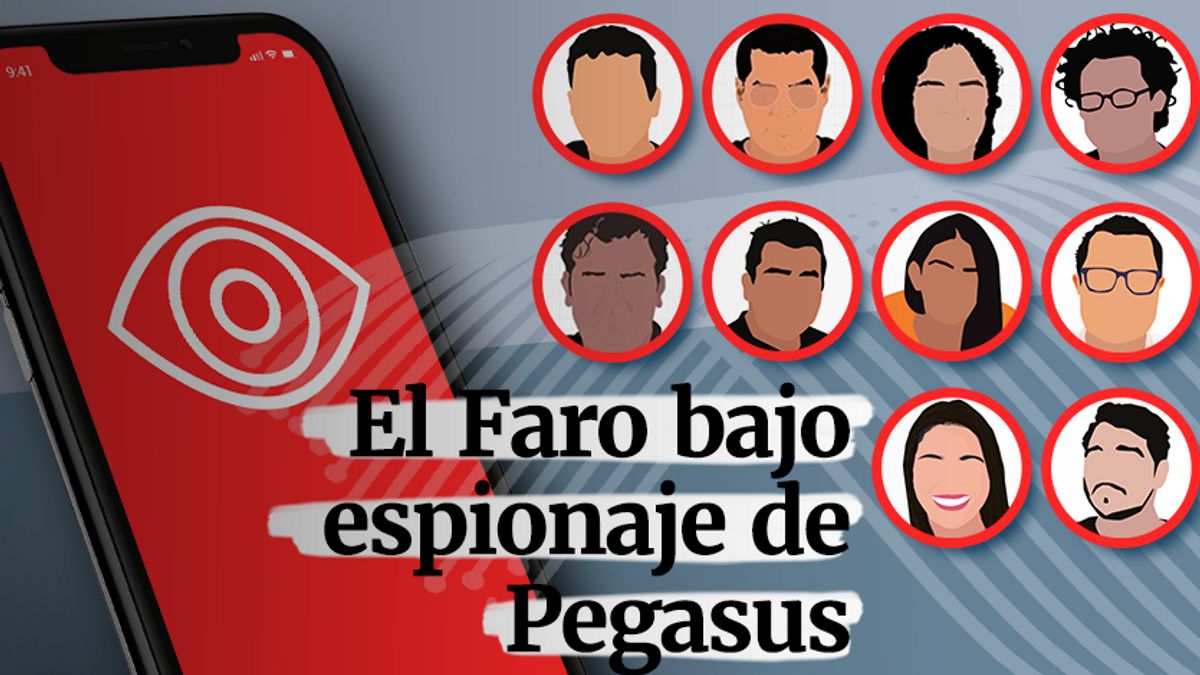JAKARTA - The cellphones of nearly three dozen journalists and activists in El Salvador, some of whom are investigating the country's alleged corruption, have been hacked since mid-2020. Their phones are embedded with sophisticated spyware normally only available to governments and law enforcement. This is known after the Canadian research institute found the allegation.
The alleged hacking, which took place amid an increasingly hostile environment in El Salvador, particularly for media and rights organizations, under populist President Nayib Bukele. The alleged hack was discovered late last year by The Citizen Lab, which studies spyware at the University of Toronto's Munk School of Global Affairs.
Human rights groups such as Amnesty International, which collaborated with Citizen Lab on the investigation, said and later confirmed samples of findings from Citizen Lab through its own technology arm.
Citizen Lab said it found evidence of attacks on phones that took place between July 2020 and November 2021. They said they could not identify who was responsible for spreading the Israeli-designed spyware. Known as Pegasus, the spyware has been purchased by state actors around the world, some of whom have used the tool to monitor journalists.
"In the El Salvador spyware attack, the main focus was on editors, reporters and activists working within that one Central American country, pointing to local customers with a particular interest in their activity," said Scott-Railton, senior researcher at Citizen Lab. , as quoted by Reuters.
"I can't think of a case where targeting a nearly exclusive Pegasus in one country doesn't end up being a user in that country," Scott-Railton said.
Citizen Lab released a report on its findings on Wednesday, January 12.
In a statement to Reuters, Bukele's communications office said the government of El Salvador was not a client of NSO Group Technologies, the company that developed Pegasus. They said the government was investigating the alleged hacking and had information that some high-ranking government officials may also have infiltrated spyware on their phones.
"We have indications that we, government officials, were also victims of the attacks," the statement said.
Pegasus allows users to steal encrypted messages, photos, contacts, documents and other sensitive information from infected phones without the user's knowledge. It can also turn handsets into eavesdropping devices by silently activating their cameras and microphones, according to product manuals reviewed by Reuters.
NSO, which has long kept its client list secret, declined to comment on whether El Salvador was a Pegasus customer. The company said in a statement that it sells its products only to intelligence and law enforcement agencies that are "vetted and lawful" for fighting crime and that it is not involved in surveillance operations.
NSO says it has a "zero tolerance" policy for misuse of spyware for activities such as monitoring dissidents, activists and journalists and has terminated the contracts of some customers who have done so.
Citizen Lab researchers said they began a forensic analysis of El Salvador's phones in September after being contacted by two journalists there who suspected their devices may have been hacked.
Researchers said they finally found evidence that spyware had been planted on a total of 37 devices belonging to three human rights groups, six news publications and an independent journalist.
Hardest hit was the online news site El Faro. Citizen Lab researchers said they found traces of spyware infection on the phones of 22 reporters, editors and administrative personnel - more than two-thirds of the company's staff - and evidence that data had been stolen from many of those devices, including some that had several gigabytes of extracted material.
El Faro was under constant surveillance for at least 17 months, between June 29, 2020 and November 23, 2021, with Editor-in-Chief's phone, Oscar Martinez, compromised at least 42 times, Citizen Lab claims.
"It is difficult for me to think or conclude that anything other than the government of El Salvador was behind this alleged hack," Martinez said. "It is clear that there is radical interest in understanding what El Faro is doing."
During the period of claimed infiltration with Pegasus, El Faro reported extensively on the scandals involving the Bukele government. These include allegations that he is negotiating financial deals with ruthless El Salvador street gangs to reduce the homicide rate to increase popular support for the president's New Ideas party.
Bukele, who frequently argues with the press, publicly condemned El Faro's reporting of the purported talk as "ridiculous" and "false information" in a September 3, 2020 Twitter post.
Tapping phones is nothing new in El Salvador, according to Citizen Lab. It was alleged in a 2020 report that El Salvador was among at least 25 countries using mass surveillance technology created by an Israeli company called Circles.
Circles technology differs from Pegasus in that it siphons data from the global telephone network instead of embedding spyware on specific devices. The report claims that the Circles system has been operating in El Salvador since 2017. Circle could not immediately be reached for comment.
Sofia Medina, Bukele's communications secretary, noted that her government did not come to power in 2017 and claimed, without providing evidence, that the alleged Pegasus attack appeared to be a continuation of surveillance launched by an unknown "power group".
The Citizen Lab's latest investigation in El Salvador was conducted in collaboration with digital rights group Access Now, with investigative assistance from human rights groups Frontline Defenders, SocialTIC and Fundacion Accesso.
The English, Chinese, Japanese, Arabic, and French versions are automatically generated by the AI. So there may still be inaccuracies in translating, please always see Indonesian as our main language. (system supported by DigitalSiber.id)











